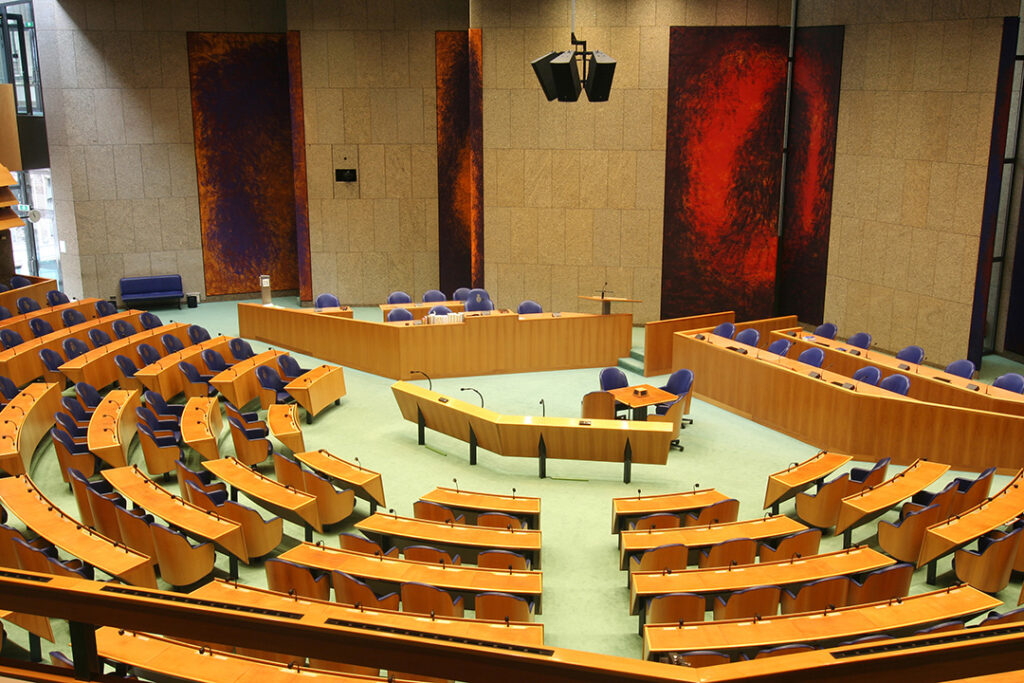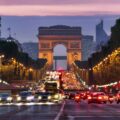Why did anti-Islam populist Geert Wilders win the Dutch elections?
Why did anti-Islam populist Geert Wilders win the Dutch elections?
Geert Wilders’ PVV party has won the Dutch elections. Why did people vote for this anti-Islam party and what will this victory mean for the Netherlands?
Geert Wilders’ PVV wins the Dutch elections
On November 22nd 2023, the Netherlands held its national elections. The results were surprising, with the far-right Party for Freedom (PVV) winning with a significant lead over all other parties. Party leader Geert Wilders responded enthusiastically, promising his voters that “the Dutch people will be number one again.”[1]
The triumph of the PVV signals the growing influence of populism in Europe.[2] Populism is a response to discontent among individuals who feel like their interests are not being recognised. Populist parties assert themselves as representatives of ‘the people’ when mainstream parties fall short of fulfilling this role.[3] This message is often combined with nativist ideas which posit that native-born inhabitants have priority over immigrants.[4]
Populist parties claim to protect the interests of ‘the people’, which they consider threatened by outside forces.[5] This perceived threat is often linked to practices associated with multiculturalism and immigration.[6] For years, Wilders has advocated putting the interests of ‘the Dutch people’ first, over those of ‘outsiders’. Many people find this message appealing, especially those who are struggling to make ends meet due to the cost of living crisis. People facing financial struggles may perceive that resources are being allocated to ‘outsiders’ at their expense. For this reason, they are attracted to leaders or policies that give priority to their financial security.[7] “Of course, the Netherlands exists for the Dutch people,” says a PVV voter.[8]
Us versus them
Although Wilders claims to represent ‘the Dutch people’, he excludes individuals with a migration background.[9] Wilders is known for his aversion to immigrants, particularly people with a Muslim background. He actively promotes the idea of “de-Islamisation,”[10] describing Islam as a “totalitarian ideology” that conflicts with Dutch values. His party program advocates restrictions on immigration from Muslim countries[11] and a ban on Islamic education, the Quran, and mosques.[12]
Wilders excludes Muslims based on their religious identity, framing them as alien and potentially dangerous. His exclusionary rhetoric promotes prejudice and negative generalisations based on Muslim identity. This fuels fear and hostility towards Muslims, contributing to Islamophobia and xenophobia.
In March 2014, Wilders asked his supporters whether they wanted more or fewer Moroccans in the Netherlands. They chanted, “Fewer!” prompting Wilders to declare, “then we’ll arrange that.” By claiming to defend ‘the Dutch people’ against Muslim ‘outsiders,’ Wilders promotes an ‘us versus them’ mentality. His rhetoric amplifies divisions between groups in society and leads to increased polarisation.
Fear, protest, and division
After Wilders won the elections, Islamic and Moroccan organisations expressed fear about the future of Muslims in the Netherlands. They found the PVV’s significant victory painful to witness, describing it as a party with Islamophobia as a focal point.[13] Muslims in the Netherlands report feeling less safe. They are concerned about Wilders’ history of negative statements about Muslims and Islam. Some worry about potential expulsion if the PVV comes to power. In addition, mosques have become extra vigilant, recalling past incidents of anti-Muslim threats and violence linked to events involving Wilders.[14]
Left-wing politician Frans Timmermans responded to the PVV’s win with dismay, stressing that he “will never enter into a coalition with a party that excludes Dutch people.”[15] Many individuals expressed sorrow and concern following the election results. Demonstrations were held in various cities throughout the Netherlands, with people protesting against exclusion, fascism, Islamophobia, and racism.[16]
“A prime minister for all Dutch citizens”
Since his win, Wilders has significantly changed his rhetoric. He expressed his intent to be a prime minister for all Dutch citizens, “regardless of where you come from and what your faith is.” Wilders also assured that his party would operate within the framework of the constitution. As part of this, he indicated a willingness to temporarily set aside certain key points, like the ban on Islamic education and the Quran. Despite his more moderate tone, these anti-Islam elements remain present in his party program.[17]
For years, Wilders has said that he wants to “make sure that the Netherlands is for the Dutch again,” hereby excluding people with a migration background.[18] This populist language heightens social tensions, deepens existing divisions, and contributes to a more polarised political landscape. If he truly aspires to be a prime minister for all, Wilders might want to consider abandoning his exclusionary rhetoric.
Want to learn more about similar topics? Explore the EARS Dashboard
Sources
[1] PVV grote winnaar van verkiezingen met 35 zetels: ‘De kiezer heeft gesproken: hij is het zat’
[2] Populists in Europe – especially those on the right – have increased their vote shares in recent elections.
[3] Ruling the Void: The Hollowing of Western Democracy
[4] Volk versus elite: PVV meest recente voorbeeld succes rechts-populisme in Europa
[5] Exclusionary vs. Inclusionary Populism: Comparing Contemporary Europe and Latin America
[6] Bound to Fail: The Rise and Fall of the Liberal International Order
[7] What Geert Wilders’ victory means for Dutch society
[8] Deze Amsterdammers stemden op de PVV: ‘De stad is een bende geworden’
[9] Exclusionary vs. Inclusionary Populism: Comparing Contemporary Europe and Latin America
[10] Geert Wilders, a far-right anti-Islam populist, wins big in Netherlands elections
[11] Geert Wilders: the anti-Islam leader vowing to ‘put the Dutch first’
[12] Wat zijn de standpunten van de PVV eigenlijk? ‘Nederlander weer op één’
[13] Islamitische Nederlanders bezorgd na monsterzege PVV: ‘Angst is groot’
[14] Moslims bezorgd na forse winst PVV: ‘Gelukkig hebben we de Grondwet’
[15] Timmermans emotioneel: ‘Vuist tegen onrecht, discriminatie en armoede’
[16] Diverse protestacties tegen winst PVV
[17] Gematigde Wilders nog steeds omstreden, maar regeren PVV niet uitgesloten






